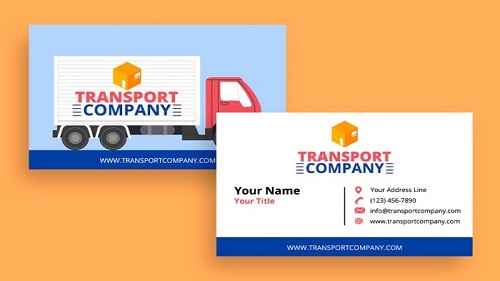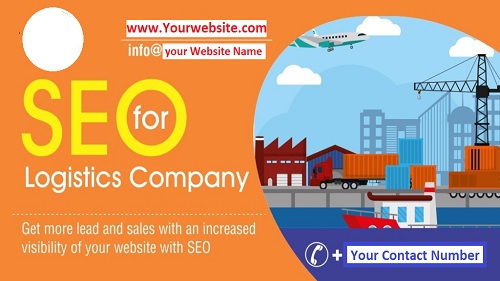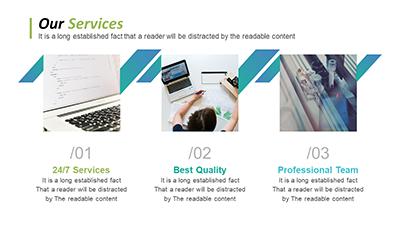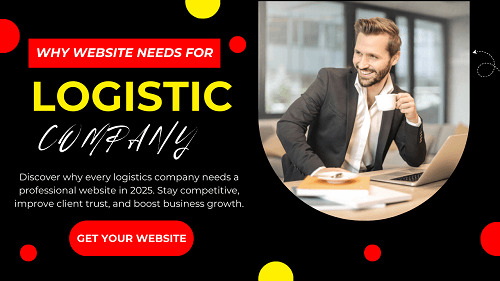In 2025, digital transformation is no longer a luxury but a necessity for businesses, and logistic companies are no exception. Technology has changed, and clients expect fast, transparent, and seamless interactions with service providers. A website is at the center of this transformation, bridging the gap between clients and logistics services. A professional website is not only the public face of your logistic company. But it is also an essential tool that helps you keep up with the competition.
Whether you’re a small logistics firm or a large enterprise, your website is more than a brochure. It’s an operational hub, a marketing tool, and a customer service center. As customer expectations grow, so does the need for logistic companies to invest in a professional online presence.
Table of Contents
What is a logistics company
A logistic company specializes in managing the flow of goods, information, and resources from the point of origin to the point of consumption. These companies handle various aspects of supply chain management, including transportation, warehousing, inventory control, and distribution. Their main goal is to ensure that products reach their destinations efficiently, safely, and on time. Logistics companies are essential in industries that require complex coordination, such as manufacturing, retail, and e-commerce, enabling businesses to operate smoothly and meet customer demands.
Why Logistics Companies Can’t Afford to be Offline Anymore
Being offline in today’s digital world is akin to being invisible. Clients and partners are no longer waiting for traditional communication channels to connect with logistics companies. Instead, they search for solutions online and expect to find all the information they need in a few clicks. If your logistic company doesn’t have a website, you’re likely missing out on significant business opportunities as potential customers may assume that you’re behind the times or not a legitimate player in the industry.
A professional website allows you to be available 24/7, helping you respond to global clients in different time zones, and ensuring that your services are always within reach.

A Professional Website: More than Just an Online Presence
Compared to a digital business card, your website is far more. It’s an interactive platform where potential customers can learn about your services, get a quote, or even track their shipments in real time. But it goes beyond that. A professional website represents your brand identity, professionalism, and the quality of your services.
The Importance of First Impressions in Business
In the logistic company industry, first impressions are critical to building long-lasting client relationships. From the moment potential customers interact with your business. Whether through your website, customer service, or delivery performance, they form opinions about your reliability and professionalism.
A positive first impression, marked by efficient communication, timely services, and professionalism, develops trust and encourages repeat business. For logistics companies, where punctuality and precision are crucial, creating an excellent first impression can set you apart from competitors and encourage loyalty among clients.
Facilitating Communication with Clients through a Website
A website is an indispensable communication tool for any logistic company. Through contact forms, live chats, and email integrations, clients can reach out to you anytime, reducing the need for lengthy phone calls or emails. With a streamlined communication process, you’re able to respond to client inquiries faster and provide better customer service overall.
Integrating Live Chat and Support
For a logistic company, integrating live chat and support can significantly improve customer experience. Offering real-time assistance through live chat allows customers to get their queries answered instantly, whether they’re tracking a shipment or inquiring about services. This immediate communication builds trust and ensures customer satisfaction.
Additionally, live chat support can handle multiple inquiries simultaneously, increasing efficiency and improving response times. By offering 24/7 support or automated chatbots, logistic companies can ensure seamless communication and respond to clients’ needs at any time, boosting customer retention and driving business growth.
Automated Email Responses and Contact Forms
For a logistic company, automated email responses and contact forms play a crucial role in streamlining communication and improving customer service. By setting up automated email responses, the company can acknowledge customer inquiries instantly, ensuring clients feel valued and informed about the next steps.
Contact forms on the website allow customers to easily submit their questions, requests, or issues, and automation ensures these messages are directed to the appropriate team. This system reduces response time, increases efficiency, and maintains a professional and organized communication channel with clients.

Increased Visibility: The Power of SEO
A website allows you to use the power of SEO to get noticed by your target audience. In an industry as competitive as logistics, you need to stand out, and SEO (Search Engine Optimization) is the way to do it. By optimizing your website for search engines, you’re ensuring that when potential clients search for logistics services. Your company ranks higher on search results, making you more visible to those who need your services the most.
SEO isn’t just for gaining international customers. Local SEO ensures your logistic company shows up in local searches, helping you capture a market that needs services close to their location.
Competing in a Global Marketplace
In today’s global marketplace, a logistic company faces immense competition and must constantly adjust to stay relevant. Efficient international shipping, advanced tracking technologies, and a robust supply chain network are crucial for success. Companies must also navigate complex regulations, tariffs, and global trade laws.
To stand out, logistics companies need to offer fast, reliable, and cost-effective solutions while maintaining flexibility and sustainability. By using innovations such as automation and AI, and providing excellent customer service, logistics companies can effectively compete in a highly interconnected global economy.
Capturing Mobile Traffic and Local Clients
For a logistic company, capturing mobile traffic and local clients is essential in today’s digital world. As more users rely on mobile devices to search for logistics services, optimizing your website for mobile is crucial for reaching potential customers. A responsive, user-friendly website that provides clear information about your services can help attract local clients.
Additionally, incorporating local SEO strategies, such as optimizing Google My Business profiles and using location-specific keywords, ensures that your logistic company shows up in local searches, which drives more traffic and increases business from nearby clients.
Online Booking and Real-Time Tracking Services: The Key to Success
In 2025, logistics companies are expected to provide more than just standard delivery services. They need to offer convenience, transparency, and control to their customers. This is where a professional website plays a critical role. Online booking and real-time tracking services are two features that have become indispensable for logistics operations. They not only improve customer satisfaction but also improve the efficiency of the business.
How Online Booking Improves Efficiency
By incorporating online booking tools into your website, you streamline the entire process for both your customers and your business. Customers can schedule pickups and deliveries on their own time, without needing to call or email during business hours. This eliminates delays caused by manual booking, allowing for a smoother workflow within your operations. Not to mention, online bookings reduce human error—customers input the data themselves. So there’s no risk of miscommunication over the phone.
Real-Time Tracking Systems for Customer Satisfaction
Customers expect to track their shipments every step of the way. A professional website with a real-time tracking system lets clients monitor their shipments in transit, giving them peace of mind. This transparency encourages trust, which is essential in logistics, where clients are often sending valuable goods. Real-time tracking also reduces customer service calls and inquiries, freeing up your staff to focus on other critical tasks. By having this feature on your website, you offer a competitive advantage that many clients now see as non-negotiable.
Improved Credibility and Trust in a Digital World
The logistics market is saturated with competitors, making credibility more important than ever. Having a well-designed website is essential to developing credibility. For many potential clients, your website will be their first encounter with your business. A clean, professional website signals that your logistic company is organized, efficient, and trustworthy. This, in turn, makes customers feel more comfortable doing business with you.
Customer Reviews and Testimonials
One of the most effective ways to build trust through your website is by displaying customer reviews and testimonials. When potential clients see that others have had positive experiences with your logistic company, they’re more likely to trust you with their shipments. Make sure these testimonials are visible on key pages of your website, such as the homepage and service pages. Even better, integrate a third-party review platform like Google Reviews or Trustpilot for transparency and credibility.
Industry Certifications and Awards
Displaying industry certifications, memberships, and awards on your website further improves your credibility. Whether it’s ISO certifications, awards for service excellence, or memberships in logistics industry associations. Showcasing these achievements demonstrates your commitment to high standards. It also helps differentiate your company from competitors who may not have these credentials.

Streamlining Internal Operations with a Website
Aside from customer-facing features, a professional website can be used to optimize internal operations. Many logistic companies use their websites to streamline processes, such as managing shipments, handling inventory, and coordinating fleets. This reduces the need for physical paperwork and manual tracking, leading to improved accuracy and reduced costs.
Online Management of Freight and Documentation
Logistics companies deal with a large volume of documentation—invoices, shipping labels, delivery notes, customs paperwork, and more. By integrating document management tools into your website, you can store and access these documents digitally. Not only does this reduce the clutter and cost of physical paperwork, but it also improves access and organization. You can quickly pull up necessary documents from anywhere, making your operations more agile and responsive.
Inventory and Fleet Management Tools
Inventory and fleet management are vital for a logistics company. Modern websites allow for the integration of inventory management systems that can track stock levels, incoming shipments, and outgoing deliveries in real-time. This reduces the chance of overbooking or underutilizing resources. Similarly, fleet management tools can be incorporated into your website, providing real-time updates on vehicle locations, fuel usage, and maintenance schedules. These integrations help logistics companies keep everything running smoothly, minimizing downtime and maximizing efficiency.
The Impact of Social Media Integration
Having a professional website is essential. But integrating it with your social media platforms can further boost your brand’s reach and customer engagement. Social media acts as an extension of your website, offering another avenue for clients to discover your services. Interact with your company, and stay updated on new offerings.
Driving Traffic through Social Media
Social media platforms like Facebook, LinkedIn, Instagram, and Twitter are powerful tools for driving traffic to your website. By posting valuable content, such as industry insights, service updates, and promotions, you can guide your followers to visit your website to learn more or make a booking. Including share buttons on your website’s blog or news sections can also encourage visitors to share your content with their network, further expanding your reach.
Engaging With Customers on Multiple Platforms
Today’s customers expect to engage with businesses on their preferred platform. Some may prefer social media, while others rely on email or phone contact. A website that’s integrated with social media makes it easier for customers to switch between these platforms, maintaining a seamless experience. For example, a client might see a logistics update on your LinkedIn page and visit your website for more details. Keeping all communication channels connected builds a consistent customer experience.
Website Analytics: Understanding Customer Behavior
A professional website does more than just serve your clients; it also provides valuable insights into your business. Website analytics help you track how visitors use your website, what pages they visit most frequently, and what services are in demand. This data can be used to improve both your website and your services.
Using Data to Improve Services
For example, if you notice that many users are visiting your shipping quote page. But not completing the form, may be an indication that the process is too complicated. You can use this data to simplify the form and improve your conversion rates. Alternatively, if certain services are getting more traffic than others, you can adjust your marketing efforts to focus on those areas.
Tracking Key Performance Indicators (KPIs)
Some of the most important metrics to track include your website’s bounce rate (the percentage of visitors who leave without interacting), conversion rates (the percentage of visitors who complete a desired action, like booking a shipment), and traffic sources (where your visitors are coming from—organic search, social media, etc.). By regularly monitoring these KPIs, your logistic company can make informed decisions about website improvements and marketing strategies.
Lowering Costs through Online Operations
Running parts of your business online through your website can significantly reduce operating costs. By automating processes like booking, tracking, and customer service, you reduce the need for staff to manage these tasks manually.
Reduced Need for Call Centers
A self-service website with a comprehensive FAQ section, booking tools, and tracking systems means fewer calls to your customer service team. This allows your staff to focus on more complex customer inquiries or operational tasks, rather than answering routine questions.
Minimizing Human Errors and Delays
When customers can enter information directly through your website, the chance of human error is greatly reduced. Manual data entry mistakes—like incorrect shipment addresses or booking details—are less likely to happen, resulting in fewer costly delays.
Website Security: Protecting Customer Data
In the logistics industry, security is very important. Your website needs to ensure that customer data—such as shipment details, addresses, and payment information—is protected from cyber threats. Investing in robust website security features, such as SSL encryption, firewalls, and secure payment gateways, is essential for maintaining trust with your clients.
Adjusting to Evolving Technology: Future-Proofing Your Logistics Website
Since technology is always changing, your website must also adjust to new developments. As AI, blockchain, and automation become more prevalent in logistics, your website should be able to integrate with these technologies. This may include automated booking systems, blockchain-based tracking for increased transparency, or AI-driven customer support tools.
FAQs:
Q. Why is SEO important for logistics companies?
SEO helps logistics companies improve their visibility online, making it easier for potential customers to find their services through search engines like Google.
Q. How does online booking improve logistics operations?
Online booking streamlines the process, reduces manual errors, and allows customers to schedule shipments at their convenience, improving efficiency.
Q. What are the security features needed for a logistics website?
A logistics website should include SSL certificates, firewalls, secure payment gateways, and data encryption to protect sensitive customer information.
Q. Can small logistics companies benefit from a website?
Absolutely. A professional website can help small logistics companies reach a broader audience, compete with larger firms, and offer streamlined services.
Q. What are the costs of building a professional logistics website?
The cost can vary based on complexity. But in general, investing in a professional website that includes booking, tracking, and customer service tools is worth the long-term return on investment.
Conclusion:
The logistics industry is moving faster and more digitally than ever before. By 2025, every best logistics company will need a professional, well-optimized website to stay competitive. Whether it’s increasing visibility through SEO, offering customers convenience with online booking and real-time tracking, or streamlining internal operations, the benefits of a website are undeniable. Investing in your online presence now will not only set you apart from competitors. But also ensure long-term growth and success in a rapidly changing industry.
Summarize the key points, emphasizing why now is the time for every logistic company to build or upgrade their website. Restate how a professional, well-optimized website can lead to increased visibility, better customer service, operational efficiency, and ultimately, greater success.
If you enjoyed this article about the logistic company, share your thoughts in the comments below! Please visit www.uniqueincs.com for more valuable content and claim your free e-book. Plus, explore discounted Digital Marketing Products to boost your business!
Improve your digital presence with an innovative website design that seamlessly integrates style and utility. Connect with www.uniquewebonline.com, using the most current trends and technologies to create visually pleasing and user-centric websites customized to increase your brand. Always prepared to captivate your audience and make a lasting impression, Unique Web Online invites you to create a digital experience that distinguishes you. Explore our portfolio and get started on the path to a striking, responsive, and effective website today.

